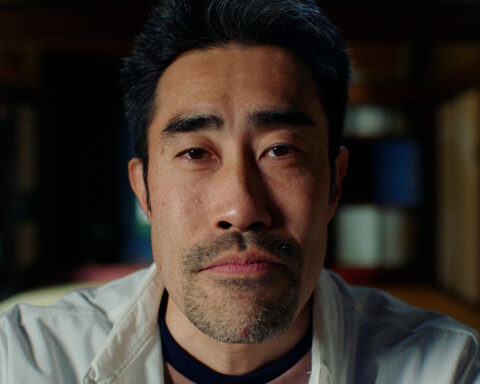Some of you may recall the Heinz ketchup “anticipation” ads from the late ‘70s. Over the silky smooth Carly Simon song “Anticipation,” the viewer gazes upwards to a ketchup bottle from which Heinz’ famous sauce slowly flows out to add flavour to a burger.
It’s a bit like that for Toronto’s huge film going population as well as the city’s critics. We’re all anticipating TIFF (the Toronto International Film Festival), the yearly event that adds flavour and zest to the city—as well as a lot of fascinating films—every September. Not many of us are listening to Carly Simon anymore—currently I’m hearing Rostropovich’s interpretations of Bach’s Cello Sonatas—but there is a charged atmosphere in the air among we cinephiles.
With TIFF less than two weeks away, it’s time to start reporting on what viewers can see at the festival. And what better place to start than with TIFF Docs? One thing I’ve learned over the years of going to film festivals—with docs, the ratio between anticipation and satisfaction is far greater than with fiction films. You can be assured that a doc on the Holocaust will actually concentrate on that tragic topic; it won’t skitter off into a myriad of directions as some of the avant-garde films of TIFF’s Wavelengths are wont to do.
With a week of press screenings under my belt—but mindful of not revealing judging too much before the festival begins—here are some documentaries that the cognoscenti will enjoy.
Errol Morris is one of the finest filmmakers — not just documentarians — in the world. An enormous intellect, he creates deep, thought provoking films that question our standard perceptions of right and wrong. His new film The Unknown Known will be compared to his Oscar winner The Fog of War in which he resurrected the career and philosophy of Robert McNamara, the controversial Secretary of Defense who is inextricably associated with the Vietnam War. Here Morris brings us Donald Rumsfeld, the US Secretary of Defense under Bush—and the key figure during the Afghanistan and Iraq invasions. Rumsfeld’s phrase “the unknown known,” which he defines as “things you know that it turns out you don’t know,” is at the heart of the matter for Morris, a director, who once worked as a private eye. A philosophy graduate as well, Morris is the right person to interrogate Rumsfeld’s actions and thought processes.
Like the Morris film, Tim’s Vermeer is a mystery story with a difference. Graphic arts inventor Tim Jenison is obsessed with the brilliant work of Vermeer, the great Dutch artist, famed for his ability to “paint with light.” Using old technology and new as well as books by David Hockney and Philip Steadman, Tim proposes to recreate the Vermeer masterpiece The Music Lesson. On hand to document the proceedings are the famous magicians Penn and Teller, in their cinematic debuts as a producer-director team.
The preeminent master of cinema verité Frederick Wiseman is back at TIFF with At Berkeley, his four-hour long study of one of the greatest universities in the world. Back in the Sixties, Berkeley—and the whole Northern California scene—was the site for some of the most startling counter-cultural and “revolutionary” events of the period. Now, as rising tuition fees and cutbacks to many programmes are taking place, Berkeley and other institutions find their role in society is being placed under heavy scrutiny. A significant figure in Wiseman’s characteristically multilayered investigation of the university is its Chancellor Robert Birgeneau, who used to be the president of UofT, so local interest in this film should be quite high.
Claude Lanzmann, the director of Shoah, is back with another film about the Holocaust, The Last of the Unjust. The film is a profile of Benjamin Murmelstein, the controversial rabbi from Vienna who collaborated with the notorious Nazi Adolf Eichmann in a successful effort to arrange for the emigration of 120,000 Jews from Austria. Eichmann became extremely wealthy thanks to Murmelstein but many Jews did achieve their freedom.
More problematic was Murmelstein’s acceptance of the role of Jewish Elder in the famously artistic concentration camp at Theresienstadt, which the Nazis used a propaganda tool to convince neutrals during the Second World War that no atrocities were talking place in their occupied lands. After the war was over, Murmelstein spent time in a Czech prison before eventually moving to Rome. Lanzmann spent a week with the aged Murmelstein in 1975 and grew to “love him.”
Finally, the other great Holocaust director, Marcel Ophuls — the maker of The Sorrow and the Pity — is on hand with a new, much sweeter film, Ain’t Misbehavin’, in which he reminisces about his old cinema friends Truffaut, Kubrick, Woody Allen—-and his father Max, the great romantic director of La Ronde and Lola Montes.











